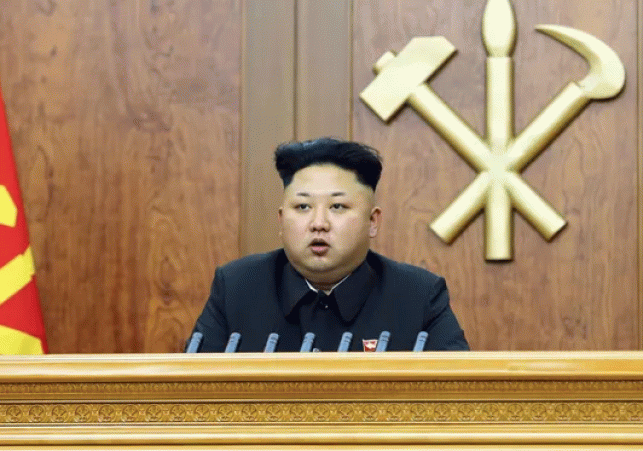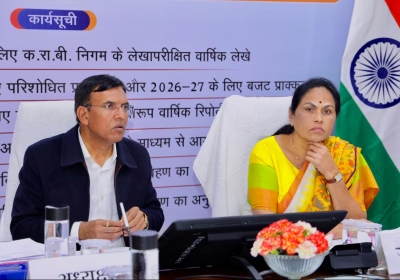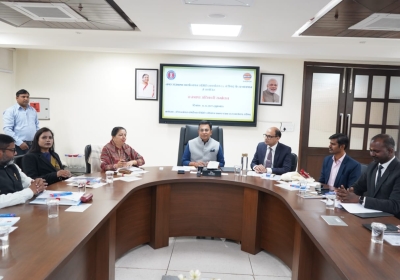
Kim Jong Un Replaces Top General
Kim Jong Un Replaces Top General and Calls for Enhanced Military Readiness
- By Anubhuti --
- Friday, 11 Aug, 2023
North Korean Leadership Shift Signals Heightened Military Preparations
In a significant development, North Korean leader Kim Jong Un has undertaken a series of strategic moves, including the replacement of the country's top general and a call for increased military preparedness. These actions, reported by state media KCNA on Thursday, highlight North Korea's focus on bolstering its military capabilities and readiness for potential conflict, raising concerns on the global stage.
Leadership Shake-Up: Chief of General Staff Dismissed
One of the key changes initiated by Kim Jong Un is the dismissal of Chief of the General Staff Pak Su Il, who had held the position for approximately seven months. The state media report from KCNA did not delve into the specifics behind the decision. However, the sudden replacement of a high-ranking military official underscores the regime's intent to restructure and reinforce its military leadership.
Also Read:
Appointment of New General: Reinforcing Military Command
General Ri Yong Gil has been appointed to succeed Pak Su Il. Ri, who previously served as the country's defense minister and held command over conventional troops, now takes on the pivotal role of Chief of the General Staff. This reshuffling of personnel highlights Kim Jong Un's emphasis on consolidating military command and expertise within his administration.
Ri's history includes prior service as the army chief of staff, during which he was replaced in 2016. His temporary absence at that time spurred speculation in South Korea about his fate, with rumors of execution circulating. However, he reappeared and was subsequently appointed to another significant senior post, showcasing the fluid nature of North Korean politics.
Intensified Military Readiness and Production Targets
Kim Jong Un's recent directives extend beyond personnel changes. The North Korean leader has called for a substantial enhancement of the nation's military preparedness. State media reported that he set a target for expanding weapons production capacity, a crucial component of North Korea's defense strategy. The report, however, lacked specific details regarding the scale and nature of this expansion.
Underlining his commitment to bolstering the country's military might, Kim Jong Un's visit to weapons factories last week resonates as he emphasized the need for the production of key assets like missile engines and artillery. This demonstration of leadership aligns with his broader objective of reinforcing North Korea's military capabilities.
Global Implications and Future Uncertainties
Kim Jong Un's recent maneuvers carry significant implications for regional stability and international relations. As North Korea continues to engage in military exercises and reshuffles its high-ranking military officials, neighboring countries and global powers remain watchful. The changes in leadership and directives for military preparedness raise questions about the potential trajectory of North Korea's foreign policy and the broader geopolitical landscape.
In a world marked by uncertainty, the actions of North Korean leadership underscore the importance of diplomatic engagement and collaborative efforts to ensure regional peace and security. As nations assess the evolving situation, strategic recalibrations and vigilant diplomacy will be vital in managing the potential ramifications of North Korea's heightened military posture.
Also Read:





